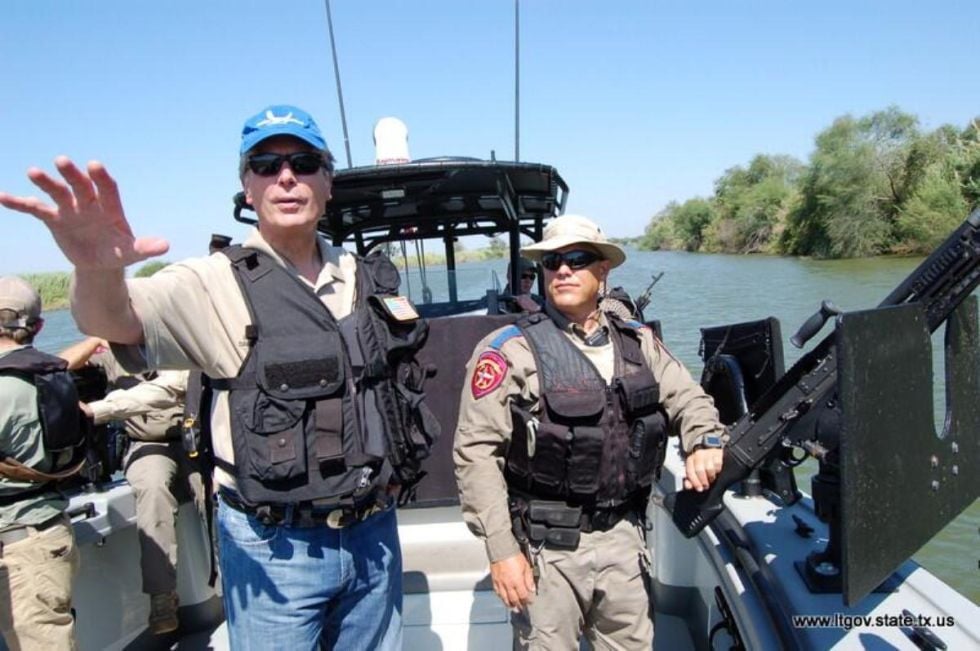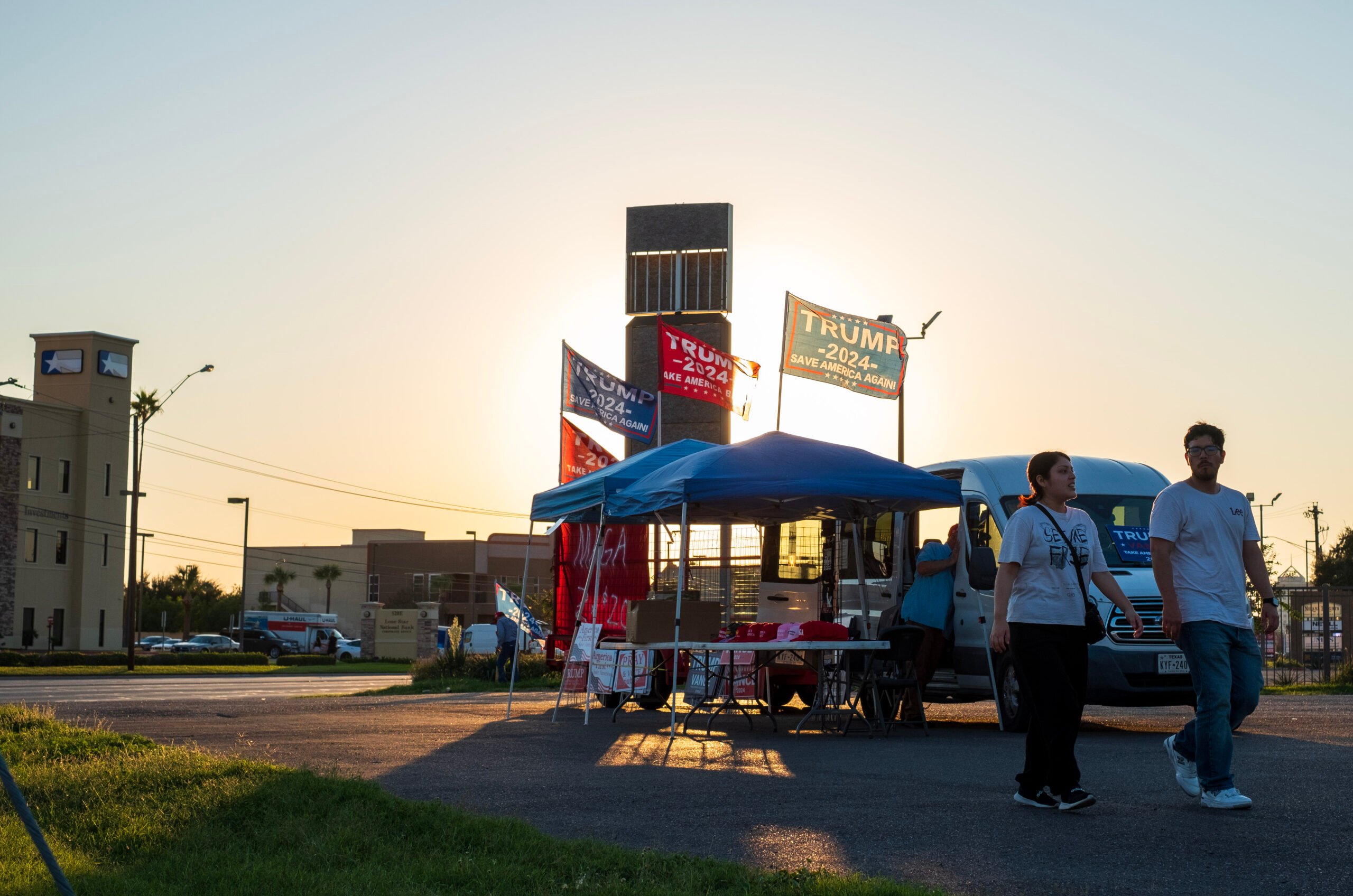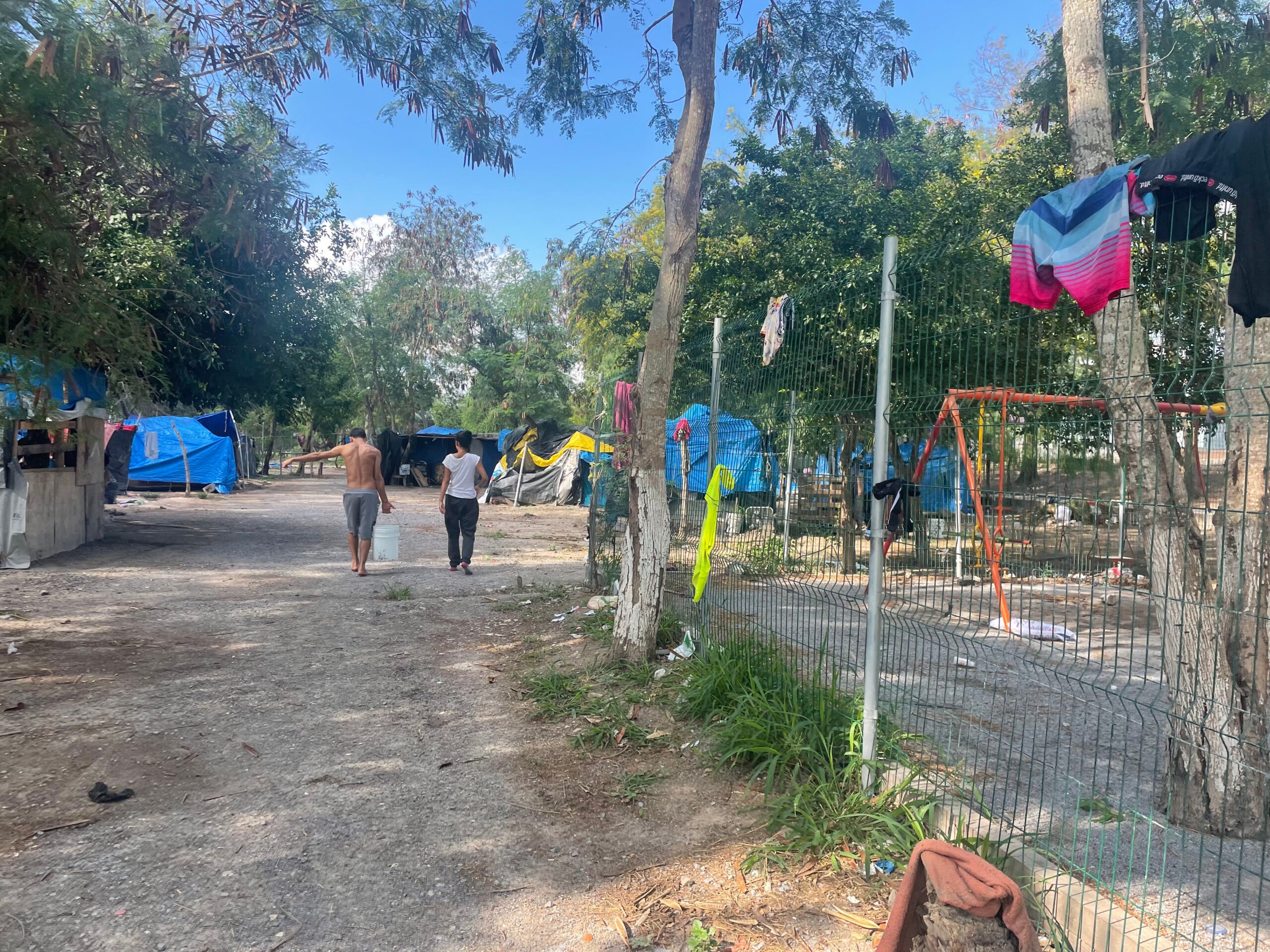
Dewhurst: ‘Someone’s Going to Get Hurt’ in Border Surge

In October 2012, game wardens with Texas Parks and Wildlife Department gave chase to a red pickup truck near La Joya in the Rio Grande Valley, believing the truck was carrying a load of drugs beneath a tarp over the bed. The game wardens called DPS for backup, and soon a DPS helicopter joined the high-speed chase. As the truck sped along near the U.S.-Mexico border, DPS trooper Miguel Avila opened fire on the truck, killing two young Guatemalan men and injuring a third huddling underneath the tarp with six other undocumented immigrants. None of the men were armed and no drugs were found in the truck. The incident provoked international outrage and led DPS to revise its shoot-from-a-helicopter policy.
“And quite frankly if you fire on our DPS they’re going to try to locate you and apply suppressing fire and somebody’s going to get hurt.”
The delicate situation begs for caution and restraint, especially from elected officials. But Lt. Gov. David Dewhurst has approached Texas’ border operations with all the subtlety of a coal-rolling F-350 diesel dually.
Dewhurst is a frequent guest on Waco Tea Party Radio, a two-hour local radio and web program run by two tea party activists. It was on that program that Dewhurst said last summer that he saw “bags of feces” at the Capitol during the abortion protests. And three weeks ago, he was on the show again to talk about Texas’ border security operations. Dewhurst made all sorts of blustering comments on the show, and added a new spin to the wildly inaccurate figure—first generated by DPS and later repeated by Gov. Perry—that undocumented immigrants have committed 3,000 homicides in Texas since 2007. (Dewhurst’s twist was to say that there were 3,500 “capital murders.”) But, there were several comments that struck me as particularly incendiary. Asked by co-host and Waco Tea Party President Toby Marie Walker about what the Texas Rangers are doing on the border, Dewhurst said:
“I don’t want to see any loss of life, but if anyone is listening from south of the border I’d recommend them that if they are approached by the DPS put your hands in the air and don’t fight, otherwise it’s not going to be pretty.”
Now, I doubt there are any, say, unaccompanied children from Central America listening to an obscure tea party podcast in English while trying to stay one step ahead of death on their journey to the U.S. And the kids and families are turning themselves in anyway. But of course the menacing bravado here is not meant for immigrants; it’s meant for those who fear and loathe undocumented immigrants—the audience that Dewhurst has been unsuccessfully pandering to for at least two years.
Terri Burke, executive director of the ACLU of Texas, called Dewhurst’s remarks “absurd.”
“The greatest threat down here is the Border Patrol and DPS. Immigrants, there is no evidence that these folks crossing are committing violent acts. … What this region doesn’t need is any more boots on the ground. We need judges. We need immigration officials to process all these folks.”
On the tea party show, the lt. governor went on to get more specific about what sort of rules of engagement to expect from DPS. But first, he took a shot at Border Patrol.
“[Border Patrol agents] are outgunned. Most of them are carrying a 9mm. They’re outgunned; they’re outmanned. And their rules of engagement is [sic] that if they’re fired on, they’re required to back off. And quite frankly if you fire on our DPS they’re going to try to locate you and apply suppressing fire and somebody’s going to get hurt.”
Border Patrol has hardly been reticent about using deadly force. Quite the opposite in fact. According to Texas Monthly, Border Patrol has killed at least 42 people since 2005—and many of those incidents have been shrouded in secrecy and a virtually non-existent system of accountability. (Read Nate Blakeslee’s account in Texas Monthly of how a father on a picnic with his wife and two young daughters in Nuevo Laredo was shot and killed by a Border Patrol agent—an incident that federal officials have said virtually nothing about.) A recently released report commissioned by Border Patrol found that Border Patrol agents have stepped in front of cars in order to justify shooting at the drivers and opened fire on rock-throwers when they could’ve simply moved away.
The report recommended tightening Border Patrol’s use-of-force policies—advice that the federal agency has taken and applied to a set of new rules. But DPS troopers have strictures that Border Patrol agents apparently do not.
It is reasonable that DPS troopers could use force, including deadly force, if fired on. DPS’ Use of Force policy stipulates that an officer may discharge his or her firearm if the “use of deadly force is justified” and “the discharge does not present an unreasonable risk of injury to third parties.” The circumstances where deadly force is allowed include when “the officer reasonably believes that deadly force is immediately necessary to defend the officer or another person from a substantial risk of death or serious bodily injury.”
“I don’t want to see any loss of life, but if anyone is listening from south of the border I’d recommend them that if they are approached by the DPS put your hands in the air and don’t fight, otherwise it’s not going to be pretty.”
On a less bloody level, DPS has to be careful not to be seen as doing immigrant enforcement.
Of late, DPS has had a rocky relationship with border residents, who’ve bristled at the state law enforcement agency’s deployments to the Rio Grande Valley. Last year, DPS spearheaded a “multi-agency law enforcement initiative” called Operation Strong Safety, which featured roadside checkpoints, ostensibly to enforce traffic laws. Valley residents complained that DPS was unfairly picking on them and worried that state troopers were taking on immigration enforcement, a charge that the agency disputed. A Facebook page devoted to tracking the shifting roadblocks attracted more than 50,000 people.
So, it’s understandable that many folks in the Valley look on the latest “surge” of National Guard troops and state law enforcement personnel—also dubbed Operation Strong Safety—with trepidation. DPS Director Steve McCraw has pledged to use the “boots on the ground” to focus on law enforcement and drug interdiction. The agency has acknowledged that only federal authorities can enforce immigration laws, but state cops can still play a role. If a state trooper encounters someone suspected to be in the U.S. illegally, “that individual is immediately referred to the appropriate federal authorities,” a DPS spokesman told the media in June.
Last week, an undocumented woman, Isabel Barbosa, who’d lived in La Joya for 17 years and has five U.S. citizen children, was pulled over by a DPS trooper for swerving. Instead of writing the woman a ticket, the trooper “flagged down” a “passing Border Patrol agent” according to a summary of the incident provided to the Observer by DPS. “DPS subsequently released the driver to the Border Patrol.”
Some Texas Republicans are now floating an idea that Texas can constitutionally take over the federal government’s role in policing the border. On that same Waco Tea Party show, Sid Miller, the GOP nominee for agriculture commissioner, argued that the U.S. Constitution’s prohibition on states’ engaging in war provides an exception in the case of an invasion.
“And I would suggest that this would classify under the definition of an invasion, when you have hundreds of thousands of people pouring through your border,” Miller said. “It’s never been done before, but if Texas would invoke Article 1, Section 10 we’d have all the same powers as the federal government to arrest illegals coming across, process them under Texas law and to return them to their country of origin.”
When I spoke with Terri Burke of the ACLU this week, she was in the Valley and had recently visited with a group of colonia residents in San Benito she said were terrified to leave their homes because of the presence of DPS and Border Patrol in their neighborhood.
“They have no authority to immigration enforcement, so this business of ‘we’re just calling in the Border Patrol’ is a specious argument when you see the DPS and Border Patrol cars sitting side by side,” she said. “What they’re really doing is harassment. They’re disrupting the lives of people who live in this region whether they are documented or undocumented.”

